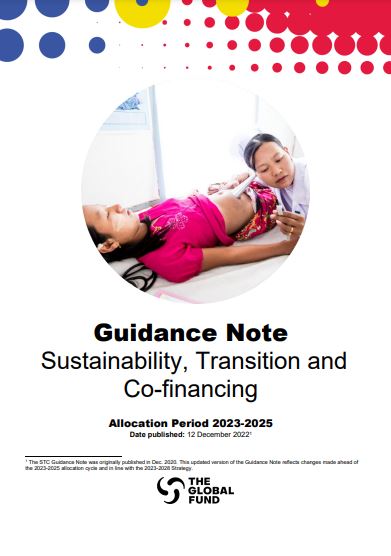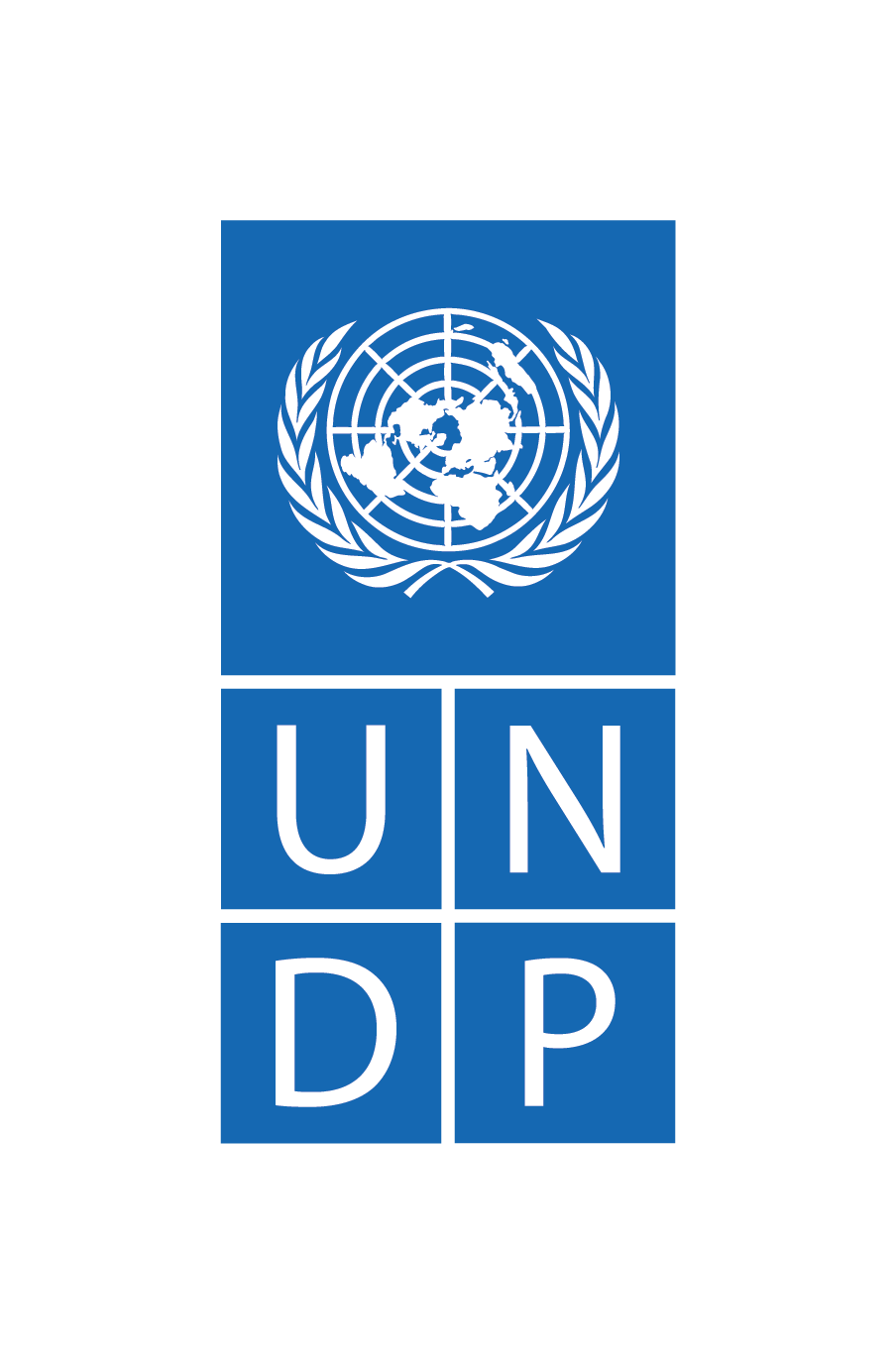Social contracting for effective service delivery under domestically-funded health programmes
Purpose
Communities and civil society organizations (CSOs) have been instrumental in driving the global HIV response from its earliest days. Community-based organizations have spearheaded advocacy efforts to expand access to prevention, treatment, care and support services for all in need, regardless of location and socioeconomic status. Governments, multilateral organizations and donors have come to recognize the vital role of CSOs and communities, not only in advocating for HIV services, but also in providing the services themselves, reaching those who may otherwise be left behind. Drawing on lessons learned from the HIV response, CSOs also play a significant service delivery role in tuberculosis and malaria responses.
The sustainability of critical services provided by CSOs depends on CSOs accessing diversified funding sources. “Social contracting” has been shown to be an efficient and cost-effective way to formally reinforce the link between CSOs and government, and to channel funding to CSOs to provide services that can strengthen national disease responses and health systems. While there is no universally adopted definition of social contracting, it is broadly understood as CSOs (which include and serve key populations) receiving domestic funding to deliver health prevention, treatment, care and support services.
The COVID-19 pandemic has further illustrated the critical role that CSOs can play in advocacy for and delivery of health services to vulnerable communities. Allocating public finances to civil society service delivery in the COVID-19 response is instrumental in leaving no one behind and building forward better.
UNDP’s Approach
UNDP identifies non-governmental organizations (NGOs) as key players in the transition process towards domestic financing of national HIV responses. UNDP carries out analyses of legal frameworks, related to the social contracting of NGOs as providers of health-related services, particularly those related to HIV, and makes recommendations to countries on legal frameworks and the current practice of social contracting between governments and NGOs. UNDP works with national stakeholders to ensure that NGOs are explicitly recognized as partners and service providers in public health legislation and policies. UNDP also engages with partners to advance this goal through convening consultations and developing or contributing to guidance materials.
Global consultations on social contracting
In 2017, UNDP, the Global Fund to Fight AIDS, Tuberculosis and Malaria (The Global Fund) and the Open Society Foundation partnered in convening a global consultation about social contracting. Input from participants included perspectives on existing approaches, as well as reflections from donors and technical partners about their experiences to date. Legal, policy and structural barriers to social contracting were analysed and the meeting reviewed opportunities for mitigating them. The findings of the global consultation were documented in the SHIFT social contracting report which features nine models of healthcare service delivery through social contracting from various parts of the world.
IIn December 2019, UNDP, the Global Fund and the Joint United Nations Programme on HIV/AIDS (UNAIDS) convened the global consultation “Public financing of service provision by civil society organizations in national responses to HIV, TB and malaria”. The consultation brought together 80 delegates from 34 countries to: (1) provide a forum for demonstrating the value of social contracting to expand services for key and vulnerable populations; and (2) initiate and catalyse dialogue among countries at different stages of developing social contracting mechanisms to share good practices, lessons learned and practical strategies to improve these mechanisms. The detailed insights from each of the thematic discussions are included in the consultation report, which will soon be made available here.
Tools and guidance
UNDP has developed an NGO guidance note, which aims to help international organizations, government, non-governmental organizations (NGOs) and other stakeholders to develop fact sheets and to use the facts and recommended actions to set up or improve NGO social contracting mechanisms. A step-by-step guide is provided, allowing not only easy use, but also a standardization .
In 2019, UNDP published a collection of case studies which features experiences from eight middle-income countries that are at various stages of developing social contracting mechanisms to support their responses to HIV. The case studies examine contextual factors such as health systems, human rights, governance systems, disease epidemiology and response, space for civil society overall and experience in social contracting.
A key message to country stakeholders, donors and technical partners from the eight case studies is that it is essential to start work on social contracting early, with meaningful community engagement, investing in enabling laws and policies, contextualizing and preparing customized solutions (testing and improving them) and, ultimately, integrating solutions into public health responses. Examples from countries with developed social contracting mechanisms convincingly demonstrate that these mechanisms can be effective and sustainable solutions for community-led service delivery.
The Sustainability, Transition and Co-financing guidance note by the Global Fund to Fight AIDS, Tuberculosis and Malaria (The Global Fund) is intended to support countries to strengthen sustainability, increase domestic financing and enhance preparations for the transition from the Global Fund support as they develop funding requests, implement the Global Fund grants and manage national HIV, tuberculosis and malaria programmes. To support country-level dialogue on the development of activities to support social contracting mechanisms, a specific annex dedicated to public financing of civil society service provision is now included in this guidance.
As part of its technical assistance to countries, UNDP supports evidence generation and advocacy to promote stakeholder buy-in, national leadership and increased investments in NGO social contracting for HIV prevention and other health services for key populations. As one approach to support advocacy for investments in social contracting, UNDP has adapted its existing social return on investment (SROI) methodology to determine the social returns of governments’ use of social contracting for health services. It piloted the SROI methodology with a focus on HIV activities funded by social contracting in three countries in Eastern Europe and Central Asia in 2020, with the results showing significant social returns. Building on this pilot, UNDP is developing a global guidance note to support stakeholders in other regions to apply the SROI methodology for HIV-related services delivered through social contracting to key and marginalized populations. SROI analyses can be used as part of lobbying activities to emphasize the benefits brought about by social contracting, increase domestic funding for it and inform decision-making to channel funds into NGO activities that yield the greatest social impact, with a focus on reaching the most marginalized groups.
Key resources

Guidance Note for the Analysis of NGO Social Contracting Mechanisms
This UNDP guidance note aims to assist governments, international organizations, NGOs and other stakeholders to develop fact sheets and recommend actions for setting up or improving NGO social contracting mechanisms.
pdf

Country Case Studies: Using Social Contracting in National HIV Responses Country Case Studies from Africa, the Caribbean, Eastern Europe and Latin America
United Nations Development Programme
This collection of case studies features experiences from eight middle-income countries that are at various stages of developing social contracting mechanisms to support their responses to HIV.
PDF

Guidance Note: Sustainability, Transition and Co-financing
The Global Fund to Fight AIDS, Tuberculosis, and Malaria
This note includes a specific annex dedicated to public financing of civil society service provision.
PDF

A Global Consultation on Social Contracting: Working Toward Sustainable Responses to HIV, TB, and Malaria through Government Financing of Programmes Implemented by Civil Society
Open Society Foundations, United Nations Development Programme, The Global Fund to Fight Aids, Tuberculosis and Malaria.
This report presents the background, findings, and next steps that were the result of the 5-6 October 2017 consultation convened in New York by OSF, UNDP, and the Global Fund to discuss social contracting.
Website
